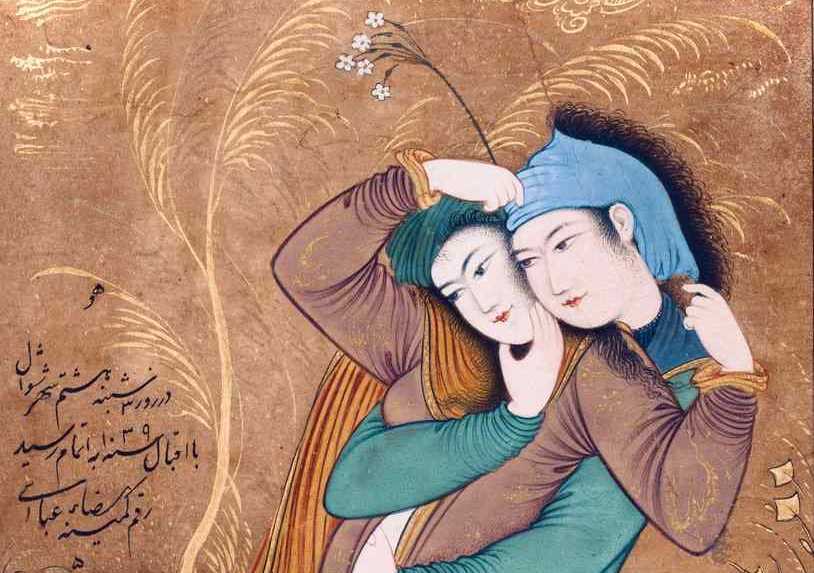Ibn Hazm: Love may be tasted, but never described

People in 11th-century Andalus found love to be just as mysterious as it is for us today.
Ibn Hazm of Cordoba (d. 1064) writes:
Love! It begins as lighthearted banter and ends in heartfelt confession. Its nuances are too subtle for words… Love may be experienced but never described. Religion cannot condemn love, nor can the Law forbid it — for every heart is in God’s hands.
In Arabic:
الحب - أعزك الله - أوله هزل وآخره جد. دقت معانيه لجلالتها عن أن توصف، فلا تدرك حقيقتها إلا بالمعاناة. وليس بمنكر في الديانة ولا بمحظور في الشريعة، إذ القلوب بيد الله
Arabic vocabulary
- hubb (حب) – love
- awwal (أول) – the first
- hazl (هزل) – joking, banter
- akhar (آخر) – the last
- jidd (جد) – seriousness
- munkar (منكر) – something condemned, esp. in religious terms
- diyana (ديانة) – religion, religious belief or creed
- mahzur (محظور) – banned or prohibited
- shari’a (شريعة) – religious law or rules
- qulub (قلوب) – hearts (singular: qalb)
- yad (يد) – hand
Notes
- This quote is from Ibn Hazm’s book, The Neck-Ring of the Dove (Tawq al-Hamama), where he reflects candidly on love. Most medieval Muslim authors wrote about love in a standardized way, using well-known tropes, stories and poetic images. But Ibn Hazm wrote about his own romantic experiences, bringing a personal touch rarely seen in other works.
- Translation is my own.
- At the end of this translation, I wrote: “Religion cannot condemn love, nor can the law forbid it.” I read that as a statement about the legal status of love: Matters of the heart (qalb) are not enforceable in Islamic law, because the heart / love is considered to be outside of human control (and by extension, beyond the law). Ibn Hazm, who was a highly trained jurist himself, points to this idea when he says that hearts are “in God’s hands.”
